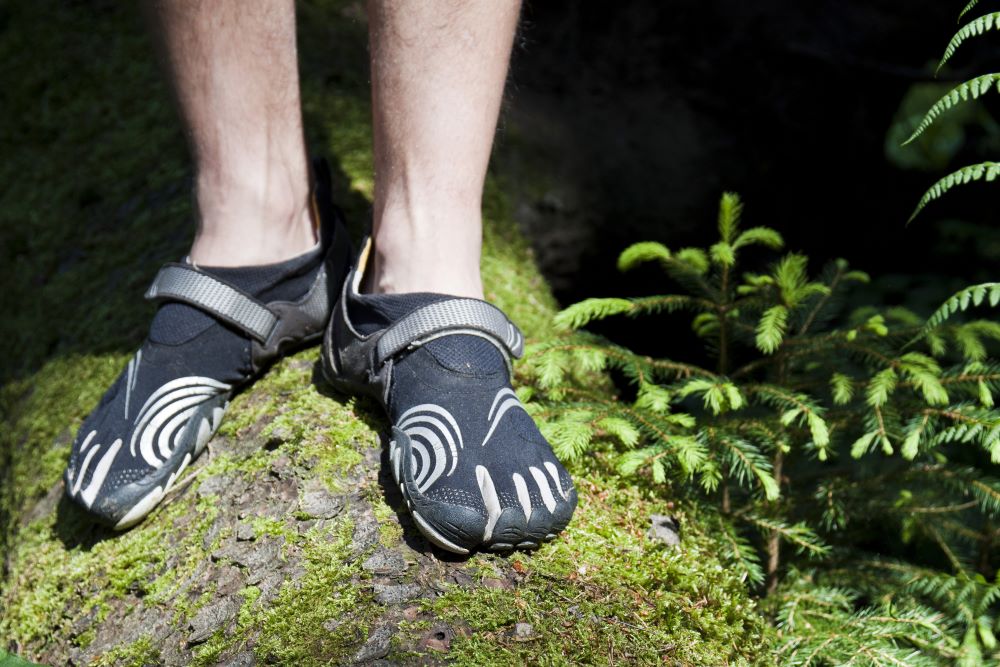Welcome to the exhilarating world of trail running! If you’ve ever wondered why so many people are ditching the treadmill for the trails, you’re in the right place. Trail running is not just an exercise; it’s an experience that combines the beauty of nature with the challenge of varied terrain. Whether you’re a seasoned runner or a beginner, the benefits of trail running are numerous and can transform your physical and mental well-being.
From the moment you step off the pavement and onto a trail, you’ll notice a difference. The uneven surfaces engage different muscle groups compared to road running, promoting better balance and strength. Additionally, the fresh air and scenic views offer a refreshing escape from the hustle and bustle of daily life, providing a much-needed mental break.
Moreover, trail running encourages mindfulness. As you navigate through roots, rocks, and elevation changes, your mind stays focused on the path ahead, allowing you to be present in the moment. This not only enhances your running experience but also reduces stress and boosts overall mental health.
Ready to start your trail running journey and reap these incredible benefits? Visit our website to learn more and get started today! Click here.
Mental Health Boost Through Trail Running

One of the most profound benefits of trail running is its positive impact on mental health. In today’s fast-paced world, stress and anxiety are common issues that many people face. Trail running offers a natural remedy by providing a serene environment that promotes mindfulness and reduces stress levels.
Being surrounded by nature has a calming effect on the mind. The sounds of birds chirping, the rustling of leaves, and the sight of lush greenery can all contribute to a sense of peace and tranquility. This natural setting allows runners to disconnect from the pressures of daily life and reconnect with themselves.
Moreover, the physical activity involved in trail running releases endorphins, often referred to as the brain’s feel-good neurotransmitters. These endorphins can help to alleviate symptoms of depression and anxiety, leading to an improved mood and a more positive outlook on life.
Additionally, trail running requires a high level of concentration and focus. Navigating the uneven terrain and avoiding obstacles keeps the mind engaged and present, which can be a form of active meditation. This mental focus helps to clear the mind, reduce mental fatigue, and improve cognitive function.
Incorporating trail running into your routine can make a significant difference in your mental well-being, providing a natural and enjoyable way to boost your mood and reduce stress.
Physical Fitness Improvements

When it comes to enhancing physical fitness, trail running stands out as an exceptional workout. Unlike running on a flat surface, trail running involves varied terrain, which engages different muscle groups and provides a comprehensive workout.
One of the key benefits of trail running is the improvement in cardiovascular health. The constant changes in elevation and terrain require more effort from your heart and lungs, leading to increased cardiovascular endurance. Over time, this can result in a stronger heart, improved lung capacity, and better overall cardiovascular health.
Trail running also helps to build muscle strength. The uneven surfaces and inclines work your legs more intensely than running on a flat surface, targeting muscles in the calves, quads, hamstrings, and glutes. Additionally, the need to maintain balance on rocky or root-covered paths engages your core muscles, contributing to a stronger and more stable core.
Moreover, trail running can enhance agility and coordination. The necessity to dodge obstacles, navigate turns, and adjust to varying ground conditions sharpens your reflexes and improves your overall coordination. This not only benefits your running performance but also translates into better overall athleticism.
Lastly, the varied terrain reduces the repetitive impact on joints compared to running on hard surfaces, potentially lowering the risk of injuries such as shin splints or stress fractures. This makes trail running a more sustainable and enjoyable long-term exercise option.
Incorporating trail running into your fitness routine can lead to significant improvements in strength, endurance, and overall physical fitness, making it a worthwhile addition for any fitness enthusiast.
Trail Running and Weight Management
One of the often-overlooked benefits of trail running is its effectiveness in weight management. If you are looking to shed pounds or maintain a healthy weight, trail running can be an excellent addition to your fitness regimen.
Trail running is a high-calorie-burning activity. The varied terrain and elevation changes require more energy than running on a flat surface. This increased demand for energy translates into higher calorie expenditure, which is crucial for weight loss. On average, trail running can burn up to 10% more calories than road running, making it a more efficient workout for those looking to manage their weight.
In addition to burning calories, trail running boosts your metabolism. The intensity of running on uneven terrain and inclines triggers the afterburn effect, where your body continues to burn calories even after you’ve finished your run. This metabolic boost can last for hours, further aiding in weight management.
Another advantage of trail running is its impact on muscle mass. The varied terrain works different muscle groups, helping to build lean muscle. Increased muscle mass can improve your resting metabolic rate, meaning you’ll burn more calories even when you’re not exercising.
Furthermore, trail running helps to curb appetite. The combination of physical exertion and being in nature can act as appetite suppressants, making it easier to stick to a healthy eating plan. The mental benefits of trail running, such as reduced stress and improved mood, can also reduce emotional eating, contributing to better weight management.
Incorporating trail running into your routine offers a dynamic and enjoyable way to manage your weight effectively. Not only does it help you burn more calories and boost your metabolism, but it also supports muscle growth and helps control your appetite, making it an invaluable tool for anyone focused on weight management.
Connecting with Nature

One of the most profound benefits of trail running is the opportunity to connect with nature. Unlike urban running, which often involves dodging traffic and navigating crowded sidewalks, trail running immerses you in the natural world, providing a sanctuary from the hustle and bustle of daily life.
Being in nature has been shown to have numerous psychological benefits. Studies indicate that exposure to natural environments can reduce stress, anxiety, and depression. The tranquility of a forest trail or the expansive views from a mountain path can have a calming effect, helping to clear your mind and improve your mood. This connection with nature can be especially therapeutic, offering a mental escape and a chance to reset.
Trail running also provides sensory enrichment. The sights, sounds, and smells of nature—whether it’s the rustling leaves, the chirping birds, or the fresh scent of pine—can enhance your running experience, making it more enjoyable and fulfilling. This sensory engagement can make your runs feel less like exercise and more like an adventure, increasing your motivation to stick with your routine.
Moreover, trail running fosters a sense of adventure and exploration. Every trail offers something different, from challenging terrains to hidden waterfalls and scenic overlooks. This element of discovery can make your runs exciting and unpredictable, keeping you engaged and eager to explore new paths.
Connecting with nature through trail running can also instill a sense of gratitude and mindfulness. As you navigate through natural landscapes, you’ll likely develop a deeper appreciation for the environment and your own physical capabilities. This awareness can lead to a more mindful running practice, where you are fully present and in tune with your body and surroundings.
In essence, trail running allows you to forge a meaningful connection with nature, transforming your runs into a holistic experience that benefits both your body and mind. Whether you are running through dense forests, along serene lakesides, or up rugged mountains, the natural world offers a unique and enriching backdrop for your fitness journey.
Building a Stronger Community

Trail running is not just a solo endeavor; it has the power to build a stronger community among like-minded individuals. Runners who hit the trails often form bonds through shared experiences, mutual support, and a collective appreciation for nature and fitness.
One of the key aspects of trail running that fosters community is the sense of camaraderie. When you join a trail running group or participate in trail races, you become part of a network of enthusiasts who share your passion. This sense of belonging can be incredibly motivating, as you find encouragement and inspiration from others who understand your journey. Whether it’s cheering each other on during a challenging run, sharing tips and advice, or celebrating each other’s achievements, the trail running community is built on mutual support.
Additionally, many trail running events and groups emphasize inclusivity. Regardless of your skill level, age, or background, you can find a niche within the trail running community. This inclusivity helps to break down barriers and fosters a welcoming environment where everyone feels valued and included. Participating in group runs or volunteering at events can deepen your connections and enhance your sense of community.
Moreover, trail running often involves environmental stewardship. Many trail runners take an active role in maintaining and preserving the trails they use. This can include organized clean-up events, advocacy for conservation efforts, and fundraising for environmental causes. By working together towards a common goal, trail runners can make a positive impact on their local environments, further strengthening their sense of community and purpose.
Finally, the social aspect of trail running cannot be understated. Post-run gatherings, whether at a local café or a park, provide opportunities to forge friendships and share stories. These social interactions can make your trail running experience more enjoyable and create lasting memories.
In conclusion, trail running is more than just a physical activity; it’s a gateway to building a robust and supportive community. By connecting with fellow trail runners, you enrich your running experience and contribute to a collective spirit that values health, nature, and mutual support. Visit our website to learn more and get started today! Click here.


